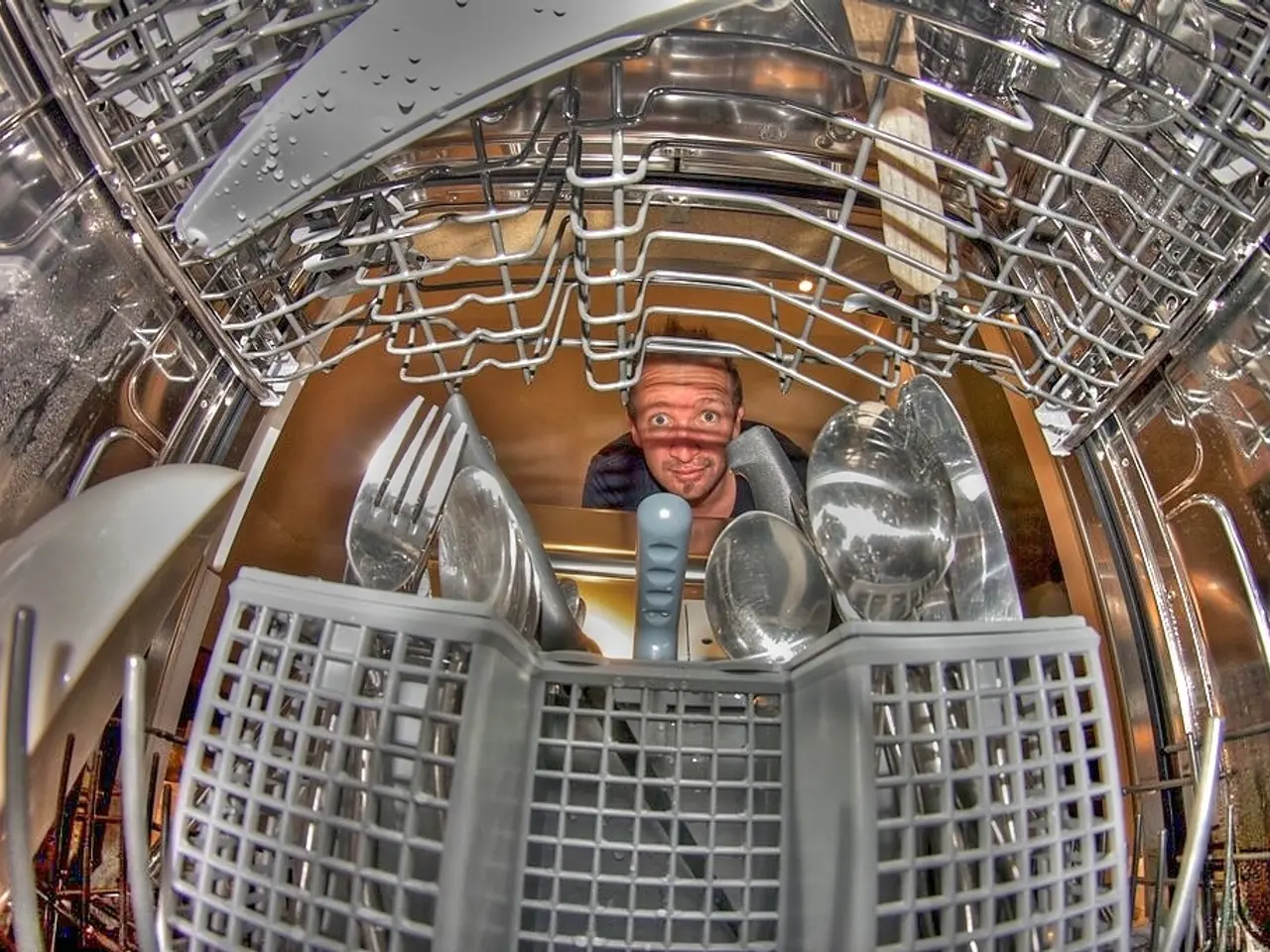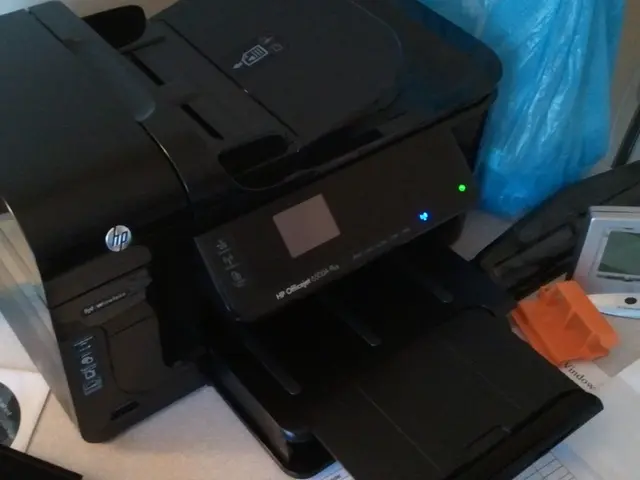Dishwasher Failures: Identifying Common Problems and Solutions
A dishwasher can be a handy appliance in any home, but it can also pose a risk of electric shock if not properly maintained or installed. Here are some common problems and solutions to keep your dishwasher running safely and efficiently.
Electric Shock Risks
Electric shocks from dishwashers are primarily caused by moisture ingress, damaging the electrical insulation, or if the power cord or appliance insulation is damaged, exposing live parts. Improper grounding or a faulty protective conductor system in the home's electrical installation can also lead to shock risks.
To avoid electric shocks, it is essential to:
- Use the appliance only in enclosed, non-humid spaces and avoid exposure to steam or water sprays from high-pressure cleaners.
- Ensure the dishwasher is properly grounded and connected per local electrical codes. The mains plug must be easily accessible or have an integrated isolating switch.
- Avoid DIY repairs. Repairs should be done only by trained professionals using genuine spare parts.
Common Dishwasher Problems
- Damaged Power Cord or Insulation: Replace immediately with manufacturer-approved parts; never operate a dishwasher with cracked surfaces or damaged cords.
- Moisture Exposure: Regularly check the power cord and plug for wear or damage. Keep the area around the dishwasher dry.
- Improper Installation: Ensure the dishwasher is installed correctly, and follow local electrical codes.
Common Dishwasher Problems and Solutions
- Leaks: If a dishwasher leaks water, it can often be fixed by the user without specialist help. When the dishwasher is level, the leak is more likely to be due to a problem with the door seal. To replace the rubber seal, ensure the dishwasher is level, remove the worn-out seal, and carefully insert the new one, starting with the fasteners and moving to the ends of the rubber strip.
- Pressure Switch Failure: If the pressure switch fails due to worn-out parts, oxidized sensor connecting contacts, or damaged elements, it must be replaced with a correct spare part.
- Manufacturing Defects: In some cases, the leak may be due to a manufacturing defect, and in such cases, the dishwasher should be returned to the place of purchase.
- Dishwasher Not Filling with Water: If the problem persists or involves electrical issues, it is best to seek help from experienced technicians.
Preventive Measures
- Regularly check the power cord and plug for wear or damage.
- Keep the area around the dishwasher dry.
- Clean and maintain the dishwasher to avoid component failure that might cause electrical hazards.
- Schedule routine inspections by qualified appliance service providers.
Professional Repair Services
For appliance repair services in Davie, FL, it is recommended to contact local certified appliance repair technicians who specialize in dishwasher repairs. These professionals can safely diagnose electrical or mechanical faults, replace damaged cords, or fix installation issues while ensuring compliance with safety standards.
[1] Source: Electrical Safety First [3] Source: Spark Service PRO
Read also:
- Unveiling of Advanced Ochre Tools Uncovers Complicated Early Human Craftsmanship
- Financial Management Operations (FMO) spearheads a €130 million syndicated loan for QNB Leasing, a Turkish financial institution.
- Opening anew: Belle Wi resumes doorways sans restrictions
- Harvesting Autumnal Veggies: Expert Advice from Gardenuity







